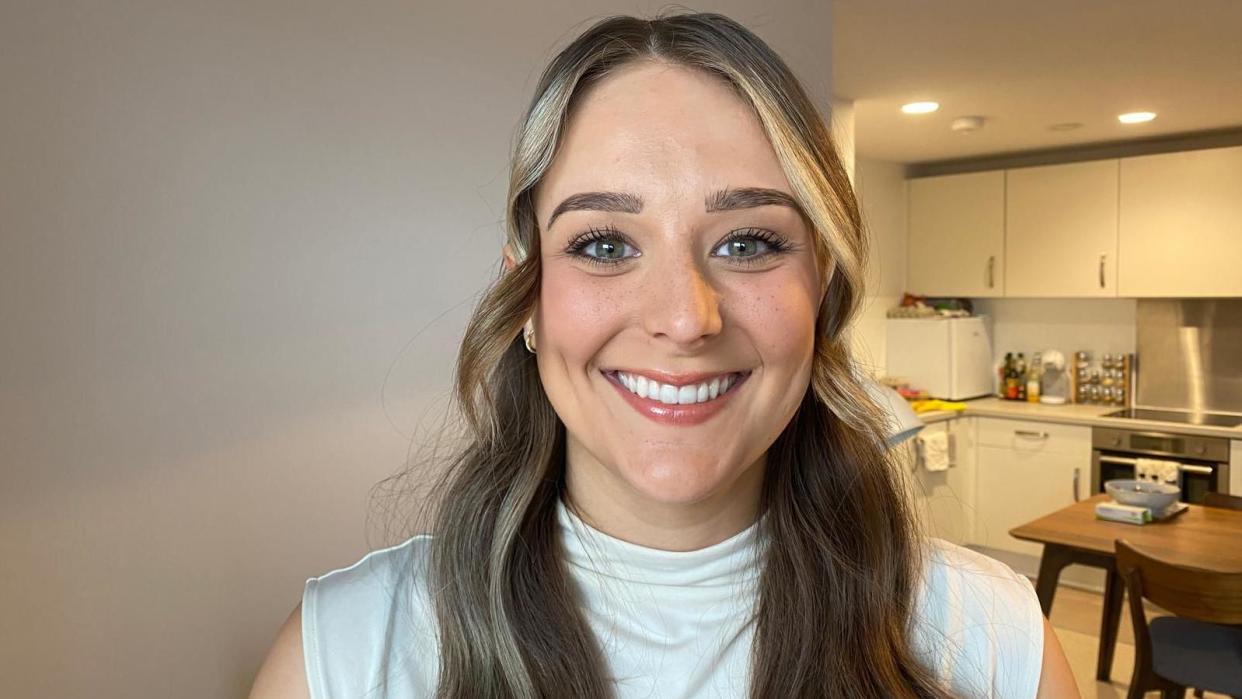Women with painful condition 'ignored' by doctors

Young women from West Yorkshire have criticised a "lack of support" available for a painful and debilitating medical condition.
The three patients, all in their 20s, said they either struggled to get a diagnosis of polycystic ovary syndrome (PCOS) confirmed despite numerous GP appointments, or were not given effective treatment.
PCOS causes painful and irregular periods, and affects up to one in 10 women in the UK.
The NHS said it "strongly advised" any woman concerned about their health to contact their GP.
Alex Offer, 24, from Leeds, said it took nine years before she was told she had PCOS after doctors "ignored" her concerns from the age of 15.
One GP dismissed her symptoms as being caused by stress and anxiety, she said.
She told the BBC: "I was 14 when I got my first period and then I didn't get another for about a year and a half.
"From the ages of 15, 16, 17 I still wasn't getting regular and I was having only three periods a year."
'I had to do all the research myself'
At the age of 18, Ms Offer was given a pelvic ultrasound scan, but was told that nothing was wrong with her body.
She then developed cystic acne, a common symptom of PCOS that affected her self-confidence.
It was only at the beginning of 2024 that she requested a second ultrasound, which resulted in her diagnosis.
Ms Offer was then told that seven cysts were present on her ovaries, but was given little information and no treatment options.
She said: "I've had to do all the research by myself. I was being told what was wrong with me by someone else, when I know my body and I'm saying 'there is something wrong, I know it's not me being silly, I know that there is something going on'."
PCOS can also cause rapid weight gain, excess facial and body hair and insulin resistance.
Research by the charity Verity PCOS UK found that 60% of women with the disorder have struggled to get a diagnosis, while 95% said they had encountered problems trying to access NHS support.

Laaraib Khan, 24, also from Leeds, reported a similar experience.
Although she received her diagnosis at the age of 13 after her mother pushed her GP to take her complaints seriously, in the past 11 years she said she had been given "little support" and was left to manage the syndrome herself.
"You have to lean on other women who are going through it rather than going to your GP, who will most likely turn you away," she said.
"When you do go, you're told to manage your weight, go outside, go to the gym, go on a mental health walk.
"Women with this condition have been told by their GP that they will struggle to lose weight, so how will my weight problems be solved by going on a walk or going to the gym more?"
Online support groups and resources such those provided by Verity PCOS UK have all been vital in providing Ms Khan with information, but she said she had researched them herself rather than being signposted by health services.
"It's frustrating having to take charge of it and find help yourself.
"GPs should be sharing more knowledge on it and pointing us in the direction of where we can get help."
Meanwhile, PCOS patient Jo Battiste, 28 and from Huddersfield, was told her painful periods were "normal" and was offered the contraceptive pill as a treatment.
She was diagnosed in her mid-20s but had first gone to her GP as a teenager.
"They put me on the pill, but it didn't interact with me well so I had to come off it myself", she said.
"Years passed and I was going to different GPs and no one could get to the bottom of the issue.
"I was told that it's normal because you're a teenager just starting your periods.
"There was no support whatsoever and the way people spoke to me was not great."
Mrs Battiste said she thought health professionals needed to be more "empathetic" towards women.
'Complex condition'
Verity PCOS UK trustee Rachel Morman said that delays to diagnosis were often due to variations in symptoms between women.
"It's such a complex condition that presents differently from person to person.
"Women's health does not have enough prioritisation, time and investment in education.
"During medical training, women's health topics are often underserved and that's a problem that results in delayed diagnosis."
An NHS spokesperson said: "NHS staff should support women experiencing polycystic ovary syndrome and we strongly advise any woman concerned about their health to speak to their GP in the first instance."
Follow BBC Yorkshire on Facebook, X (formerly Twitter), and Instagram. Send your story ideas to yorkslincs.news@bbc.co.uk.


